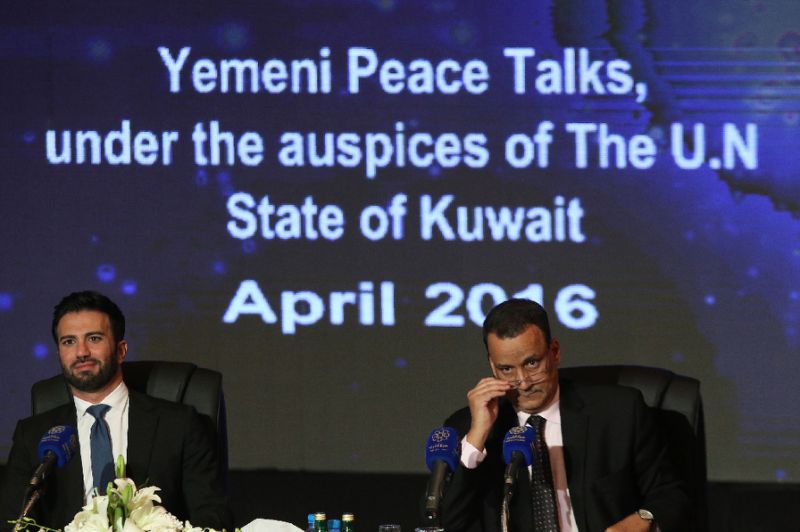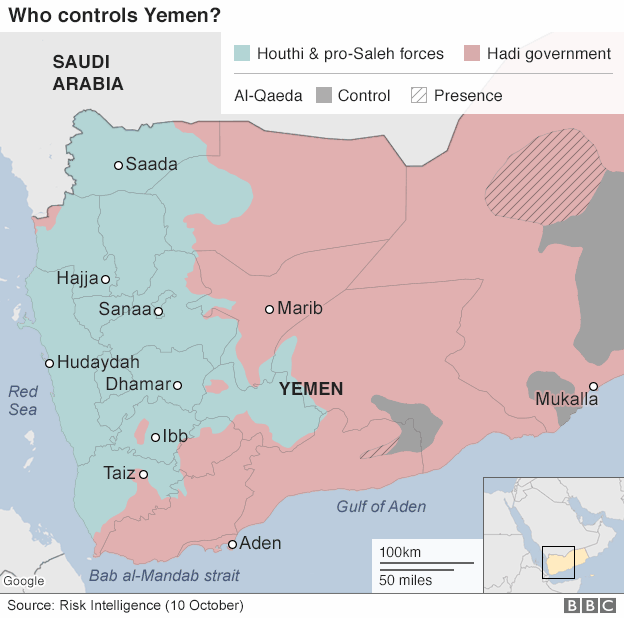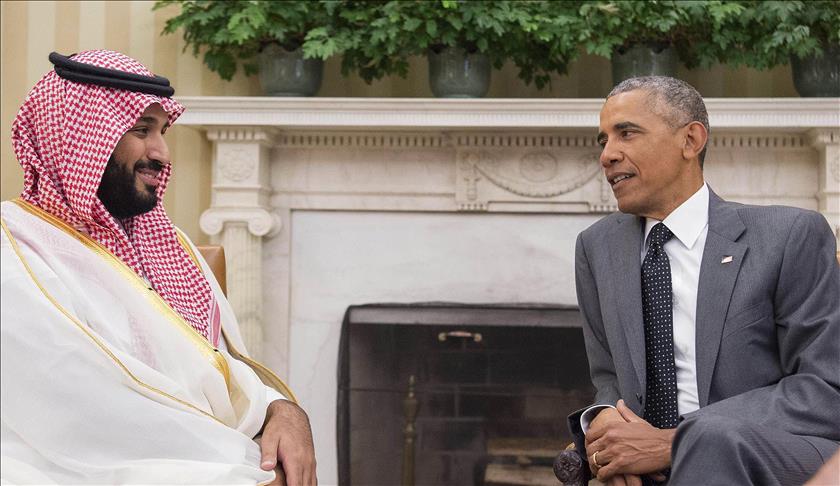
Although the United Arab Emirates is a key Saudi ally in its military campaign against Houthis, Iran-backed rebels in Yemen, it has welcomed a new United Nations peace proposal to end the Yemen conflict, while the Saudi officials considered this new plan as a “Gift” for the Houthis.
“The UAE supports the efforts of UN special envoy to Yemen Ismail Ould Cheikh Ahmed knowing that the mission of a mediator is always complicated,” UAE Minister of State for Foreign Affairs Anwar Gargash said on his Twitter account, adding that “the aim of the political resolution is to give priority to the interests of Yemen and the stability of the region.”
The remarks came two days after the UN envoy submitted the plan to Yemen’s Houthi movement and its allies, informing them that the roadmap urges agreement on naming a new vice president after the withdrawal of Houthis from the capital Sanaa and other cities, their handover of arms to a third party, and pulling out their forces from the border area with Saudi Arabia.
The fresh plan presented by Ould Cheikh, calling also the internationally recognized president Hadi to remain a figurehead leader after passing his authorities to a new vice-president.
Houthi rebels, like as the UAE administration, have welcomed the new UN plan which would end the country’s 19-month-old war, but outlined in a statement that the plan is “a basis for discussion… but contains fundamental flaws in general, in the details, and the time frame.”
They also said “the plan did not include a total permanent ceasefire or foresee lifting the blockade against areas they control”.
Hadi, supported by, KSA rejects
The Hadi administration, however, said that they had not received any draft of a new plan for a political settlement, and rejected the new UN peace plan under the pretext that the new plan is an “explicit departure” from the UN Security Council’s resolution 2216, which calls on rebels to withdraw from the territories they have captured since 2014, and with the Gulf initiative and its implementation mechanisms.
According to Gulf News, there is pressure on President Abd Rabbo Mansour Hadi from some countries to accept the plan.”
” The president and his government did not bow down and insisted the plan is a reward to the putschists.” an aide to Hadi told Gulf News from Riyadh.
Furthermore, Abdul Rahman Al Rashed, a veteran Saudi writer, indirectly criticised the Yemeni government for quickly rejecting the UN plan that contains many “positive” ideas, as described in his column at the Saudi ‘Asharq Al-Awsat’ newspaper titled “The ideas for peace in Yemen are reasonable”
Al Rashed said the plan preserves the governing system and ends Al Houthis’ coup by asking them to leave cities and hand over arms.
“In my opinion, the proposed plan is the most viable plan on the table at the moment despite its flaws; and it is better than the continuation of fighting between brothers,” he added.
Last September, Saudi officials refused to accept John Kerry’s peace road map, because it called for a Quad discussion, between the US, Saudi Arabia, the United Arab Emirates and the UK.

– Are Saudi Arabia and Emirates true allies in Yemen?
Despite the proposed peace plan, Riyadh resumed its airstrikes on Yemen just after a three-day truce.
The position of KSA administration toward Yemen crisis reflects the divergence of interests between the Kingdom and the United Arab Emirates in Yemen.
According to media reports, the objectives of the two Gulf States are slowly diverging, with the Saudis backing Islamist militias against the Houthis in the north, while the United Arab Emirates is focused on countering Al-Qaeda in the south of the country.
According to Janes defence website, the divergence between Saudi Arabia and UAE goals in Yemen, has appeared when the Emirati foreign minister said that the “war is practically over” for the Emirati armed forces in Yemen, subsequently clarifying that UAE forces would stay in Yemen to “monitor political arrangements” and “empower Yemenis” in liberated areas in coming months, while the war is still exist between the UAE’s partnership Saudi Arabia and Houthis rebels.
The Defence website confirmed that the participation of UAE in the Yemen war has a main aim which is to gain the south of Yemen, especially “Aden”. For a long time, the Emirates has cast covetous eyes on Aden to give them easy access to the Indian Ocean.



